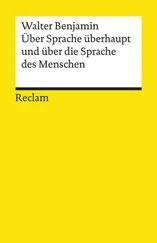MORITZ: Indeed, perfidious enough. No wonder that made it into the best houses.
FIRST MAN OF LETTERS: Yes, Deputy Headmaster, there you have the greatest failing of our entire current educational system. We enlighten man as to his natural virtue and original disposition, and then come these enthusiasts, pietists, genius-worshippers, Sturm und Drang -ers, to make fog and renewed agitation out of everything again.
PASTOR GRUNELIUS: Look here, my dear man. That should give you cause to reflect. I mean, you and your colleagues should ask yourselves why your Apostle, Jean-Jacques Rousseau, the preacher of nature and virtue, was such an unnatural and unvirtuous man. In short: to a positive theologian, your entire Enlightenment can’t seem much more than a man who needs a candle lit in front of his nose on a sunny day.
SECOND MAN OF LETTERS: No, Pastor, we don’t wish to argue in this way. It is not the right tone. I believe the Deputy Headmaster would call something of that kind argumentatio ad hominem, which is unworthy of a citizen of the academy. Come at me with Rousseau in this way, and I could come at you with Lavater, who so well understood how to connect positive religion to a hodgepodge of mysticism, genius, and enthusiasm, that over time, as you know, all serious readers were frightened off. 26
MORITZ: Worst of all, however, is that such people then believe they must follow a career educating children. I recently ran across the Ethical Primer for Country Children . 27And I must confess that I believe — of course, one shouldn’t say this — but I believe nonetheless, I did it better in my Logic for Children . 28
WAITER: If the honorable sir would forgive me a thousand times, but if the gentleman would step to one side, because I would like to light the lamps in the store window — and then, no offense, Mr. Businessman, but there is a gentleman here who has been waiting twenty minutes for the “News” to become available. And if you would be so charming as to trade it with him for the Cotta’sche Zeitung . 29
UNGER: With plaisir, my friend, with plaisir. — I can only wonder, Deputy Headmaster, at how the classifieds are getting out of hand. Can you believe that a week ago I found a wedding announcement in the Journal ?
MORITZ: I don’t know if you read the Leipziger Zeitung, but I have heard they publish entire pages filled with nothing but classified ads. But in England that was already customary in the newspapers fifteen years ago.
FIRST MAN OF LETTERS: I believe, my good gentlemen, that everything that ties the newspapers more closely to civic life, to the everyday, is to our advantage. In my opinion, newspapers should not be written only for men of state and members of Parliament, nor just for professors and scribblers. Newspapers belong in the hands of everyone.
PASTOR GRUNELIUS: You would not wish in the end, esteemed sir, to see the newspapers in the hands of the uneducated public. You see, I don’t want to say that I am au courant on everything these gentlemen are discussing, but you can trust me on one thing: as a pastor, I am better placed than anyone to survey the appalling epidemic of reading to which our public has fallen prey — and the less educated they are, the more hopeless it is. People read today who would not even have thought about books twenty years ago. And in my youth, if the citizen or craftsman took up a book, then it was an honest, time-honored tome, a chronicle, an old herbal, a homily. But today? The bourgeois girl who belongs in the kitchen is reading her Schiller and Goethe in the hallway, and the uncouth country girl trades her spindle for Kotzebue’s plays. 30My dear brother, the High Court preacher Reinhard, is absolutely right when he says that domestic problems — concerning which one hears so many complaints — can be directly traced to this ghastly habit of reading. 31
SECOND MAN OF LETTERS: This much is true — as I recently read at the German Museum — musketeers in the big cities are borrowing books from the lending library to take with them to the barracks.
UNGER: The lending library. Yes, there you have said it. They are the source of all our misery.
PASTOR GRUNELIUS: Forgive me, I don’t mean to interrupt, but when you speak of musketeers, I can tell you which books they are bringing to the barracks. I had the opportunity recently to cast a glance into a consignment they sent to the Grand Consistory for appraisal. I will tell you the titles, my good gentlemen, nothing but the titles: Augustea, or the Confessions of a Bride before Her Wedding; The Story of Justine, or So It Must Be to Remain a Virgin; The Peregrinations of Henriette. And for something of this kind one indicates Istanbul or Avignon as the place of publication, to thumb one’s nose at the censors.
FIRST MAN OF LETTERS: I certainly don’t wish to take up the defense of such books, but shall I tell you whom we have to thank for them? Those selfsame censors, esteemed sirs, who provided us with their miserable edict of July 9, 1788. 32It is the censor who robs the common man of respectable and beneficial writings, and turns his curiosity and desire to read toward the most cunning imposters. You know as well as I that it was only because of the censor that our Berlin Monthly had to move to Jena. That they suppressed the publication of Kant’s Religion within the Boundaries of Mere Reason, 33that they have forbidden Mr. von Humboldt to print two absolutely innocent lines on a garter in celebration of the marriage of the duchess of Lottum, 34that they…
UNGER: Herr Magister, you see how you are upsetting our good Pastor. Let us leave these trifles aside. Let us be happy that they have not forbidden us all writings on the circumstances in France, as they have in Austria; that we, in contrast to the Viennese, may still at least read Mendelssohn, Jacobi, Bürger, and Sterne, not to mention the Iliad.
MORITZ: You don’t mean to say that the Iliad is forbidden in Austria!
UNGER: The Iliad has been forbidden in Austria, just as the Aeneid is still forbidden today in Bavaria. — But I did not wish to speak of that. Only of something about which no honest, thinking human being can remain silent, that is, the answer they gave to the petition presented by the Berlin book trade last year: “We will not hear any objections contending that the book trade would suffer. For evil must be controlled, even if it means the book trade goes under.” 35
MORITZ: What do you expect? The censors have to live too. I’m telling you, it’s not an easy living. For one pamphlet the poor wretch only makes two cents. I’ve been told, though, that it’s more for poetry. Presumably because rhymed wickedness is harder to detect.
UNGER: Listen, this is not the right approach. You were just speaking, in passing, of your Logic for Children. That is a book that accomplishes ten times more for education and Enlightenment than a hundred censors, be they the most excellent and best intentioned, which I absolutely refuse to believe of them all. And if you could write me a second volume, it would arrive just in time. Quite aside from the fact that it would be the best way to introduce young readers to my new typeset.
FIRST MAN OF LETTERS: Finally, Deputy Headmaster! I have always wanted to tell you that I study your book with my small circle — all children from respectable families. And would you like to know what I most esteem? The incomparable passage in which you acquaint the children with the gods. I had them learn it by heart:
The real world exists in the ideas of human beings, but the world of ideas differs in that, beyond the ideas of human beings, it is simply not there. All stories of witches and ghosts are fairy tales; all of mythology and the doctrine of the gods likewise pertain to this world of ideas, which, since the most ancient times, has populated the world with countless new beings, none of which exist anywhere beyond the boundaries of human imagination. Including: Apollo, Mars, Minerva, Jupiter, and all the gods and goddesses of Olympus. 36
Читать дальше












